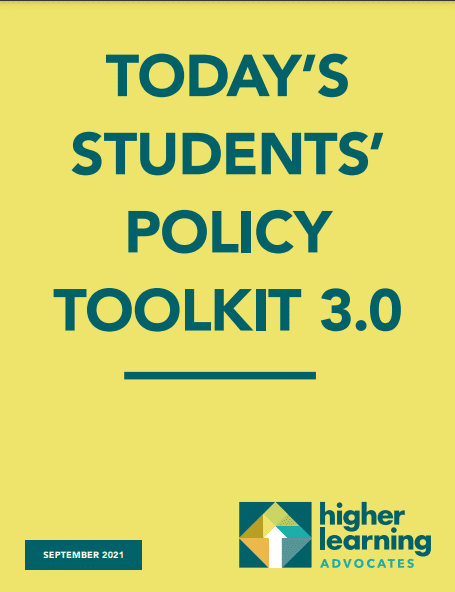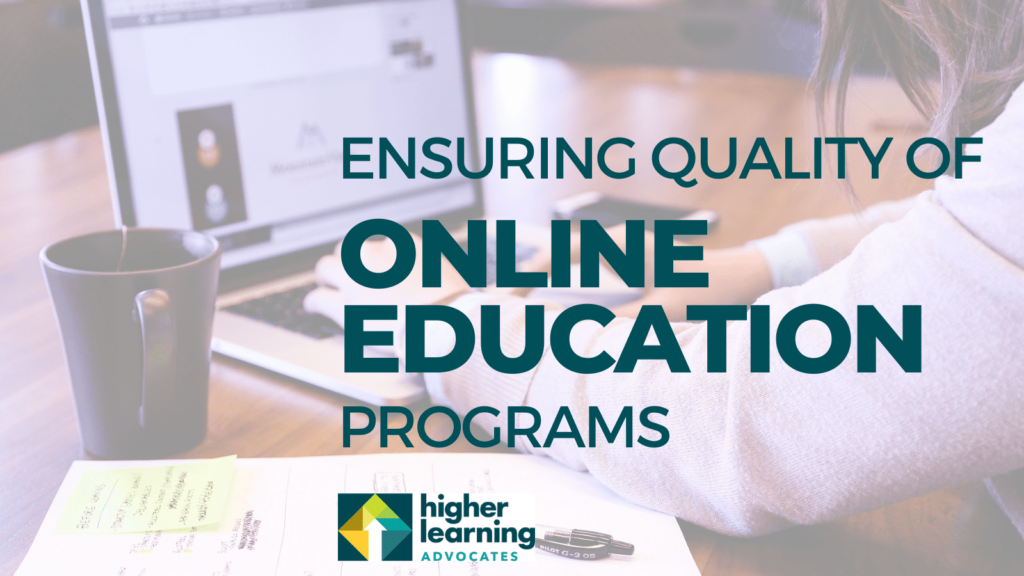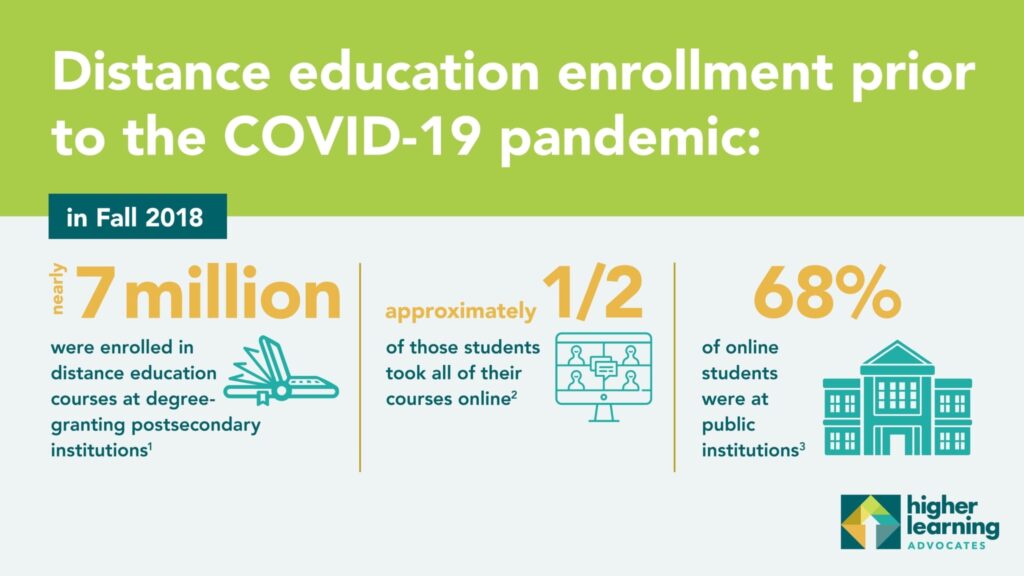Higher Education Policy Toolkit
Education creates opportunities and is integral to maintaining America’s globally competitive economy. An educated workforce begins in local communities and expands to the state, the nation, and the world. Higher Learning Advocates higher education policy toolkit for the 118th Congress focuses on connecting opportunity, supporting students, and delivering value with solutions to help strengthen our nation’s…
Read MoreOnline Program Managers (OPMS): Ensuring Quality & Protecting Innovation
Over the last two years, the COVID-19 pandemic and the changing needs of today’s students have necessitated an unprecedented shift towards online learning. Institutions of higher education were able to meet this demand partially due to online program management entities, or OPMs. OPMs are service providers which work through contracts with universities to bring academic…
Read MoreOutsourcing Online Programs: Policy Options for OPM Oversight
As a form of outsourcing in higher education, online program management (OPM) is not remarkable. Universities regularly, and with little fanfare, outsource many functions that used to be done in-house. Bookstores, dining halls, housing facilities, parking garages, and housekeeping are all part of the outsourcing model in American higher education. This brief is intended to…
Read MoreOnline Program Managers (OPMs) Backgrounder
Online program management (OPM) entities are service providers that work through contracts with colleges and universities to take academic programs online. While most OPMs are for-profit, some are nonprofit. Typically, colleges and universities that utilize OPMs seek to expand access to college courses that they cannot financially or practically offer via a traditional physical environment,…
Read MorePolicy Toolkit 3.0
Today’s students are more diverse than any previous generation of college students: they’re diverse in age, race, and income level. They’re more mobile and may not live on campus. Most participate in the workforce, either full-time or part-time. Work and family responsibilities beyond the classroom—whether that is on-campus or online—often compete with the educational goals…
Read MoreGainful Employment 101
Is higher education worth the investment? While some factors—the cost of attendance and time to earn a degree or credential—are clear, the outcomes students can expect after completing higher learning programs are difficult to determine. Gainful employment is one tool that, if implemented properly, would allow potential students access to the information they need to…
Read MoreEnsuring Quality of Online Education Programs
In spring 2020, as the coronavirus pandemic swept across the country, colleges and universities swiftly shuttered their campuses to students, unsure of for how long or what was coming next. As faculty scrambled to continue their courses virtually, they utilized emergency remote learning to deliver course content like lectures and seminars, facilitated online assessments, and…
Read More101: Distance Education
Today’s students—who are more diverse in age, race, and income than any previous generation—are more likely to be older, working, parenting, and may be working part-time or online. Even before the COVID-19 pandemic, distance education was becoming more common. Learn more about distance education and how it is used by today’s students here.
Read MoreDistance Education Backgrounder
Even before the COVID-19 pandemic made distance education the new normal, it was steadily becoming more common. Today’s students—many of whom work while in college, are financially independent, or have children of their own—need access to a college education off-campus to pursue higher education in a format that works for them. But there are still…
Read MoreUsing Earnings Metrics for Accountability
By Robert Kelchen, Associate Professor, Seton Hall University Commissioned by Higher Learning Advocates The main reason why most students go to college is for a better future, including better labor market outcomes and higher wages. A national survey of full-time students entering four-year colleges shows that 85 percent of respondents considered getting a better job…
Read More


